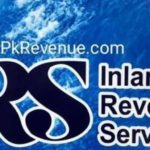ISLAMABAD: Federal Board of Revenue (FBR) issued budget salient feature related to income tax presented through Finance Bill, 2020.
INCOME TAX
RELIEF MEASURES
• Deletion of Withholding Taxes
To augment efforts towards simplification of the withholding tax regime, the following withholding tax provisions are being deleted:
Section 236R: Collection of advance tax on education related expenses remitted abroad
Section 235B: Tax on steel melters and composite units
Section 156B: Withdrawal of balance under pension fund
Section 148A: Tax on local purchase of cooking oil or vegetable ghee by certain persons
Section 236D: Advance tax on functions and gatherings
Section 236F: Advance tax on cable operators and other electronic media
Section 236J: Advance tax on dealers, commission agents and arhatis etc.
Section 236U: Advance tax on insurance premium
Section 236X: Advance tax on tobacco
This measure would reduce the cost of the compliance of taxpayers, enhance the control of FBR over the withholding tax regime and would be pivotal in promoting ease of doing business.
• Enhancement of Threshold for Becoming Prescribed Person for Withholding of Tax on Supplies, Services and Contracts from fifty to hundred million rupees and a similar threshold of hundred million rupees is being prescribed for a sales tax registered person to become a withholding agent.
• Reduction in Holding Period and Tax Rates for Capital Gain on Immoveable Property to incentivize and propel economic activity in the real estate sector, the bifurcation of plots and constructed property for determining holding period of capital gains is being done away with i.e. the holding period for taxation of capital gains on disposal of immovable property is being restricted to 4 years. In addition, rates are also being reduced on capital gains emanating from disposal of immoveable property.
• Increase in Threshold of Section 21(l) per transaction delineated under section 21(l) is being increased from Rs. 10,000/- to Rs. 25,000/-. Similarly, the threshold of payments under a single from Rs.50,000/- to Rs.250,000/-.
• Increase in Threshold of Section 21(m) from Rs. 15,000/- per month to Rs.25,000/- per month.
• Enabling Adjustability of Property Expenses for All Individuals/AOPs
• Exempting Withholding Tax on Cash Withdrawal to the extent of Foreign Remittances
• Promoting Investment in Government Debt Instruments through a foreign bank account, a non-resident rupee account repatriable or a foreign currency account.
• Issuance of Centralized Income Tax Refunds
• Hajj Operators to be Exempted from Withholding Tax on Payments to Non-Residents
• Explanation for excluding Vehicles Up to 200cc from the Ambit of Advance Tax
• Advance Tax on Auction of Immovable Property to be Collected in Installments
• Prompt Issuance of Exemption Certificates to Public Listed Companies within 15 days
• Collection of Advance Tax by Educational Institutions not to Apply to Persons on the ATL
• Rationalizing Tax on Imports by shifting from person-specific rates to goods specific rates cascaded according to the type of goods, with tax @1% for capital goods, 2% for raw materials and 5.5% for finished goods irrespective of status of the importer. However, the prevailing concessional rates on certain items such as remeltable scrap of iron and steel, potassic and urea fertilizers, LNG, Gold, Cotton, goods that were importable by manufacturers under the rescinded SRO 1125(I)/2011 dated 31.12.2011, mobile phones etc. are being maintained.
• Agreed Assessment through arbitration by Assessment Oversight Committee
• Strengthening Alternate Dispute Resolution Mechanism
• Taxation Of Resident Shipping Companies as per latest marine policy
PROCEDURAL MEASURES
• Taxpayer’s Profile Automated Adjusted Assessment to rectify computational errors and wrongly claimed credits
• Real-Time Access to Databases of Certain Organizations
• Audit on the Basis of Benchmark Ratios
• Enabling E-Audit
• Strengthening Compliance Regime of Non-Profit / Welfare Organizations
• Electricity Expense to be Treated as an Inadmissible Business Deduction subject to non-disclosure of name of actual user from 01.01.2021
• Disallowance of Business Expenditure Proportionate to Sales Made to Sales Tax Unregistered Persons
• Rationalizing Depreciation Deduction based on the Half Year Rule
• Limiting Interest Deductibility to Foreign Affiliates
TECHNICAL MEASURES
• Rationalization of Cost of Transport Vehicle for Claiming Deduction on Account of Lease Rentals
• Filing of Withholding Statements under section 165 on Quarterly Basis
• Incentivizing and Promoting the Construction Industry
• Tax Exemptions and Concessions for the Gwadar Port and the Gwadar Free Zone
• Incorporation of Relief measures provided through SROs during the COVID pandemic.




